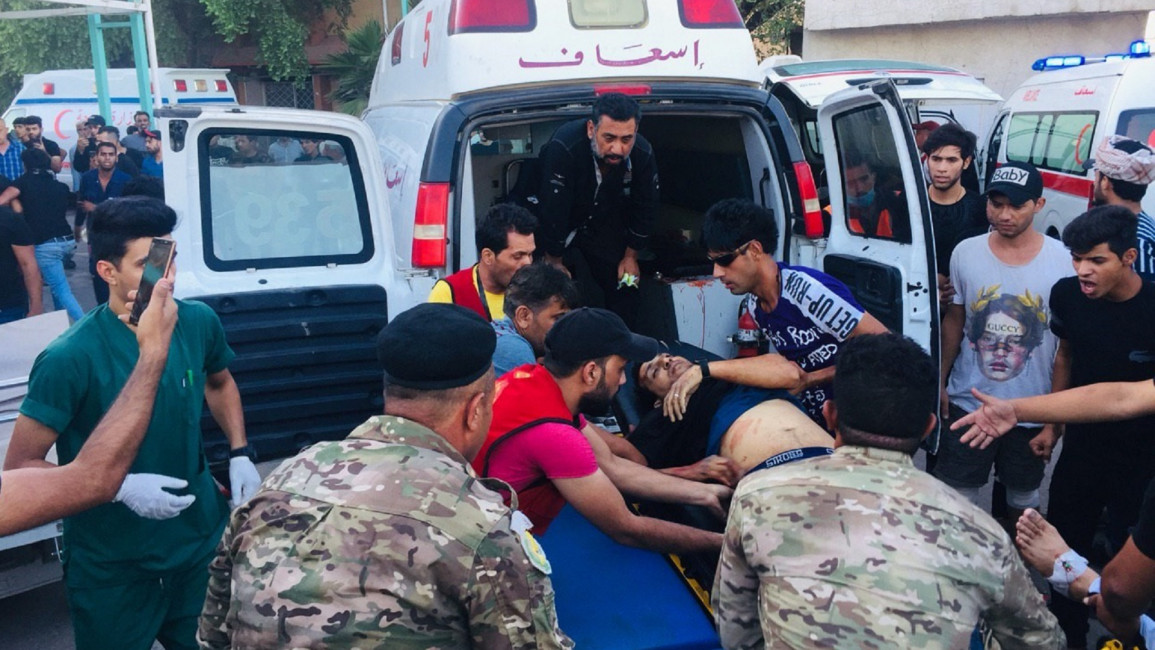Iraq military admits using 'disproportionate excessive force' against protesters
"Excessive force outside the rules of engagement was used and we have begun to hold accountable those commanding officers who carried out these wrong acts," the military said in a statement.
It was the first time since protests broke out on Tuesday that security forces acknowledged using disproportionate measures, while protesters had accused them of firing live rounds directly at them.
Hundreds had gathered overnight in Sadr City, a densely populated district in eastern Baghdad where state security forces are rarely seen.
On videos distributed on social media of the late-night rally, protesters ducked in streets littered with burning tyres as heavy gunfire was heard.
Security sources and medics said the clashes left 13 people dead overnight.
In a statement distributed to journalists on Monday morning, the Iraqi military said Prime Minister Adel Abdel Mahdi had ordered "all army units to withdraw from Sadr City to be replaced with federal police units."
He called on all forces to abide by the "rules of engagement" in dealing with rallies, it added.
In his address to the protesters last week, Abdel Mahdi had insisted security forces were acting "within international standards" in dealing with demonstrations.
Meanwhile on Sunday, Abdel Mahdi said his government would carry out wide-ranging reforms to appease protesters, including land distributions, the opening up of military employment opportunities, and increased welfare stipends for needy families.
Follow us on Twitter: @The_NewArab



